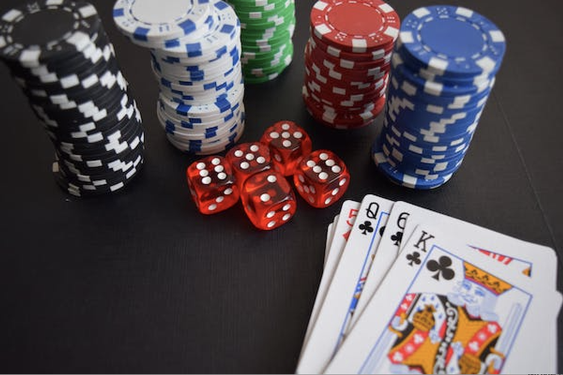"If you watch the World Poker Tour and watch these great players, they’re not calling," said Mike Sexton, the enthusiastic and knowledgeable host of the World Poker Tour broadcasts and a poker pro for more than 25 years. "They’re betting their money. They may be bluffing, but they’re betting."
And here’s why: When you bet, you have two ways to win the pot – by making the best hand and by making everyone else fold. If you merely call, you can win only by having the best hand.
What’s more, by betting aggressively, you can force potentially better hands to fold.
A vivid example comes from the final table of the World Poker Open. Four players were left, three of them having more than $1 million. Chip Reese was on the short stack with about $280,000, so he moved all in with K-5 suited, hoping everyone would fold so he could pick up the blinds and antes.
But James Tippen woke up with pocket Qs. He had more than $1 million, but he just called Reese instead of moving all in himself. Barry Greenstein, who donates all his tournament winnings to charity, drew A-K suited and re-raised all in with slightly more chips than Tippen.
"This forced Tippen to make a very difficult decision," Sexton said. "Should he call here? Should he fold here? What should he do? If he calls and loses this pot, he’s out of the tournament."
Tippen called. The flop came A-K-6. The turn came an 8. The river came an A. Greenstein made aces full of kings, busting Reese and Tippen.
"Mathematically, Tippin had the best hand," said Sexton, whose book on no-limit hold ’em is called "Shuffle Up and Deal." "But if you analyze this hand properly in my mind, Barry Greenstein can only have one of three hands there: a pair of aces, a pair of kings and possibly an ace-king. He could not be bluffing in this spot."
Thing is, Tippen’s real mistake was not where he called Greenstein’s re-raise all in, but it was in not moving all in himself first to scare off the other players who were yet to act, one of whom was Greenstein, and here’s why: If he was going to call off all his chips with Qs, he should’ve bet them all in the first place, because with nothing invested in the pot, Greenstein would’ve folded.
That way, Tippen would’ve been heads up with Reese, and sure, he would’ve lost the hand when a king flopped, but Tippen would’ve lost only $280,000, not his tournament life, and still would have had almost $1 million left to make a comeback.
TABLE TALK
Call off his chips: A player who is willing to match a bet equal to his entire stack.
(Steve Rosenbloom is a sports columnist for the Chicago Tribune. He can be reached at srosenbloom@tribune.com.)
© 2005, Chicago Tribune.
Distributed by Knight Ridder/Tribune Information Services.



